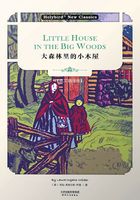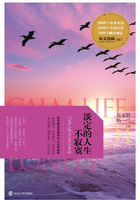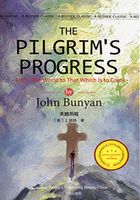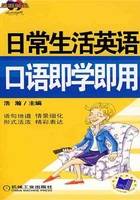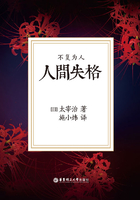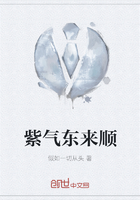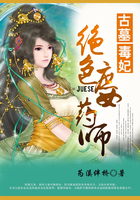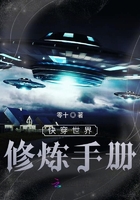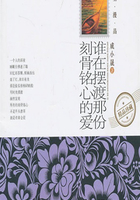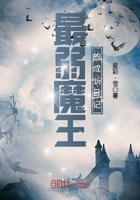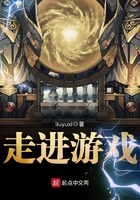MR. FOSTER was left in the Decanting Room. The D.H.C. and his students stepped into the nearest lift and were carried up to the fifth floor.
INFANT NURSERIES. NEO-PAVLOVIAN CONDITIONING ROOMS, announced the notice board.
The Director opened a door. They were in a large bare room, very bright and sunny; for the whole of the southern wall was a single window. Half a dozen nurses, trousered and jacketed in the regulation white viscose-linen uniform, their hair aseptically hidden under white caps, were engaged in setting out bowls of roses in a long row across the floor. Big bowls, packed tight with blossom. Thousands of petals, ripe-blown and silkily smooth, like the cheeks of innumerable little cherubs, but of cherubs, in that bright light, not exclusively pink and Aryan, but also luminously Chinese, also Mexican, also apoplectic with too much blowing of celestial trumpets, also pale as death, pale with the posthumous whiteness of marble.
The nurses stiffened to attention as the D.H.C. came in.
“Set out the books,” he said curtly.
In silence the nurses obeyed his command. Between the rose bowls the books were duly set out — a row of nursery quartos opened invitingly each at some gaily coloured image of beast or fish or bird.
“Now bring in the children.”
They hurried out of the room and returned in a minute or two, each pushing a kind of tall dumb-waiter laden, on all its four wire-netted shelves, with eight-month-old babies, all exactly alike (a Bokanovsky Group, it was evident) and all (since their caste was Delta) dressed in khaki.
“Put them down on the floor.”
The infants were unloaded.
“Now turn them so that they can see the flowers and books.”
Turned, the babies at once fell silent, then began to crawl towards those clusters of sleek colours, those shapes so gay and brilliant on the white pages. As they approached, the sun came out of a momentary eclipse behind a cloud. The roses flamed up as though with a sudden passion from within; a new and profound significance seemed to suffuse the shining pages of the books. From the ranks of the crawling babies came little squeals of excitement, gurgles and twitterings of pleasure.
The Director rubbed his hands. “Excellent!” he said. “It might almost have been done on purpose.”
The swiftest crawlers were already at their goal. Small hands reached out uncertainly, touched, grasped, unpetaling the transfigured roses, crumpling the illuminated pages of the books. The Director waited until all were happily busy. Then, “Watch carefully,” he said. And, lifting his hand, he gave the signal.
The Head Nurse, who was standing by a switchboard at the other end of the room, pressed down a little lever.
There was a violent explosion. Shriller and ever shriller, a siren shrieked. Alarm bells maddeningly sounded.
The children started, screamed; their faces were distorted with terror.
“And now,” the Director shouted (for the noise was deafening), “now we proceed to rub in the lesson with a mild electric shock.”
He waved his hand again, and the Head Nurse pressed a second lever. The screaming of the babies suddenly changed its tone. There was something desperate, almost insane, about the sharp spasmodic yelps to which they now gave utterance. Their little bodies twitched and stiffened; their limbs moved jerkily as if to the tug of unseen wires.
“We can electrify that whole strip of floor,” bawled the Director in explanation. “But that's enough,” he signalled to the nurse.
The explosions ceased, the bells stopped ringing, the shriek of the siren died down from tone to tone into silence. The stiffly twitching bodies relaxed, and what had become the sob and yelp of infant maniacs broadened out once more into a normal howl of ordinary terror.
“Offer them the flowers and the books again.”
The nurses obeyed; but at the approach of the roses, at the mere sight of those gaily-coloured images of pussy and cock-a-doodle-doo and baa-baa black sheep, the infants shrank away in horror; the volume of their howling suddenly increased.
“Observe,” said the Director triumphantly, “observe.”
Books and loud noises, flowers and electric shocks — already in the infant mind these couples were compromisingly linked; and after two hundred repetitions of the same or a similar lesson would be wedded indissolubly. What man has joined, nature is powerless to put asunder.
“They'll grow up with what the psychologists used to call an ‘instinctive' hatred of books and flowers. Reflexes unalterably conditioned. They'll be safe from books and botany all their lives.” The Director turned to his nurses. “Take them away again.”
Still yelling, the khaki babies were loaded on to their dumb-waiters and wheeled out, leaving behind them the smell of sour milk and a most welcome silence.
One of the students held up his hand; and though he could see quite well why you couldn't have lower-cast people wasting the Community's time over books, and that there was always the risk of their reading something which might undesirably decondition one of their reflexes, yet… well, he couldn't understand about the flowers. Why go to the trouble of making it psychologically impossible for Deltas to like flowers?
Patiently the D.H.C. explained. If the children were made to scream at the sight of a rose, that was on grounds of high economic policy. Not so very long ago (a century or thereabouts), Gammas, Deltas, even Epsilons, had been conditioned to like flowers — flowers in particular and wild nature in general. The idea was to make them want to be going out into the country at every available opportunity, and so compel them to consume transport.
“And didn't they consume transport?” asked the student.
“Quite a lot,” the D.H.C. replied. “But nothing else.”
Primroses and landscapes, he pointed out, have one grave defect: they are gratuitous. A love of nature keeps no factories busy. It was decided to abolish the love of nature, at any rate among the lower classes; to abolish the love of nature, but not the tendency to consume transport. For of course it was essential that they should keep on going to the country, even though they hated it. The problem was to find an economically sounder reason for consuming transport than a mere affection for primroses and landscapes. It was duly found.
“We condition the masses to hate the country,” concluded the Director. “But simultaneously we condition them to love all country sports. At the same time, we see to it that all country sports shall entail the use of elaborate apparatus. So that they consume manufactured articles as well as transport. Hence those electric shocks.”
“I see,” said the student, and was silent, lost in admiration.
There was a silence; then, clearing his throat, “Once upon a time,” the Director began, “while our Ford was still on earth, there was a little boy called Reuben Rabinovitch. Reuben was the child of Polish-speaking parents.” The Director interrupted himself. “You know what Polish is, I suppose?”
“A dead language.”
“Like French and German,” added another student, officiously showing off his learning.
“And ‘parent'?” questioned the D.H.C.
There was an uneasy silence. Several of the boys blushed. They had not yet learned to draw the significant but often very fine distinction between smut and pure science. One, at last, had the courage to raise a hand.
“Human beings used to be…” he hesitated; the blood rushed to his cheeks. “Well, they used to be viviparous.”
“Quite right.” The Director nodded approvingly.
“And when the babies were decanted…”
“‘Born',” came the correction.
“Well, then they were the parents — I mean, not the babies, of course; the other ones.” The poor boy was overwhelmed with confusion.
“In brief,” the Director summed up, “the parents were the father and the mother.” The smut that was really science fell with a crash into the boys' eye-avoiding silence. “Mother,” he repeated loudly rubbing in the science; and, leaning back in his chair, “These,” he said gravely, “are unpleasant facts; I know it. But then most historical facts are unpleasant.”
He returned to Little Reuben — to Little Reuben, in whose room, one evening, by an oversight, his father and mother (crash, crash!) happened to leave the radio turned on.
(“For you must remember that in those days of gross viviparous reproduction, children were always brought up by their parents and not in State Conditioning Centres.”)
While the child was asleep, a broadcast programme from London suddenly started to come through; and the next morning, to the astonishment of his crash and crash (the more daring of the boys ventured to grin at one another), Little Reuben woke up repeating word for word a long lecture by that curious old writer (“one of the very few whose works have been permitted to come down to us”), George Bernard Shaw, who was speaking, according to a well-authenticated tradition, about his own genius. To Little Reuben's wink and snigger, this lecture was, of course, perfectly incomprehensible and, imagining that their child had suddenly gone mad, they sent for a doctor. He, fortunately, understood English, recognized the discourse as that which Shaw had broadcasted the previous evening, realized the significance of what had happened, and sent a letter to the medical press about it.
“The principle of sleep-teaching, or hypnop?dia, had been discovered.” The D.H.C. made an impressive pause.
The principle had been discovered; but many, many years were to elapse before that principle was usefully applied.
“The case of Little Reuben occurred only twenty-three years after Our Ford's first T-Model was put on the market.” (Here the Director made a sign of the T on his stomach and all the students reverently followed suit.) “And yet…”
Furiously the students scribbled. “Hypnop?dia, first used officially in A.F. 214. Why not before? Two reasons. (a)…”
“These early experimenters,” the D.H.C. was saying, “were on the wrong track. They thought that hypnop?dia could be made an instrument of intellectual education…”
(A small boy asleep on his right side, the right arm stuck out, the right hand hanging limp over the edge of the bed. Through a round grating in the side of a box a voice speaks softly.
“The Nile is the longest river in Africa and the second in length of all the rivers of the globe. Although falling short of the length of the Mississippi-Missouri, the Nile is at the head of all rivers as regards the length of its basin, which extends through 35 degrees of latitude…”
At breakfast the next morning, “Tommy,” some one says, “do you know which is the longest river in Africa?” A shaking of the head. “But don't you remember something that begins: The Nile is the…”
“The Nile is the longest river in Africa and the second in length of all the rivers of the globe…” The words come rushing out. “Although falling short of…”
“Well now, which is the longest river in Africa?”
The eyes are blank. “I don't know.”
“But the Nile, Tommy.”
“The Nile is the longest river in Africa and second…”
“Then which river is the longest, Tommy?”
Tommy burst into tears. “I don't know,” he howls.)
That howl, the Director made it plain, discouraged the earliest investigators. The experiments were abandoned. No further attempt was made to teach children the length of the Nile in their sleep. Quite rightly. You can't learn a science unless you know what it's all about.
“Whereas, if they'd only started on moral education,” said the Director, leading the way towards the door. The students followed him, desperately scribbling as they walked and all the way up in the lift. “Moral education, which ought never, in any circumstances, to be rational.”
“Silence, silence,” whispered a loud speaker as they stepped out at the fourteenth floor, and “Silence, silence,” the trumpet mouths indefatigably repeated at intervals down every corridor. The students and even the Director himself rose automatically to the tips of their toes. They were Alphas, of course; but even Alphas have been well conditioned. “Silence, silence.” All the air of the fourteenth floor was sibilant with the categorical imperative.
Fifty yards of tiptoeing brought them to a door which the Director cautiously opened. They stepped over the threshold into the twilight of a shuttered dormitory. Eighty cots stood in a row against the wall. There was a sound of light regular breathing and a continuous murmur, as of very faint voices remotely whispering.
A nurse rose as they entered and came to attention before the Director.
“What's the lesson this afternoon?” he asked.
“We had Elementary Sex for the first forty minutes,” she answered. “But now it's switched over to Elementary Class Consciousness.”
The Director walked slowly down the long line of cots. Rosy and relaxed with sleep, eighty little boys and girls lay softly breathing. There was a whisper under every pillow. The D.H.C. halted and, bending over one of the little beds, listened attentively.
“Elementary Class Consciousness, did you say? Let's have it repeated a little louder by the trumpet.”
At the end of the room a loud speaker projected from the wall. The Director walked up to it and pressed a switch.
“…all wear green,” said a soft but very distinct voice, beginning in the middle of a sentence, “and Delta Children wear khaki. Oh no, I don't want to play with Delta children. And Epsilons are still worse. They're too stupid to be able to read or write. Besides they wear black, which is such a beastly colour. I'm so glad I'm a Beta.”
There was a pause; then the voice began again.
“Alpha children wear grey. They work much harder than we do, because they're so frightfully clever. I'm really awfuly glad I'm a Beta, because I don't work so hard. And then we are much better than the Gammas and Deltas. Gammas are stupid. They all wear green, and Delta children wear khaki. Oh no, I don't want to play with Delta children. And Epsilons are still worse. They're too stupid to be able…”
The Director pushed back the switch. The voice was silent. Only its thin ghost continued to mutter from beneath the eighty pillows.
“They'll have that repeated forty or fifty times more before they wake; then again on Thursday, and again on Saturday. A hundred and twenty times three times a week for thirty months. After which they go on to a more advanced lesson.”
Roses and electric shocks, the khaki of Deltas and a whiff of asaf?tida — wedded indissolubly before the child can speak. But wordless conditioning is crude and wholesale; cannot bring home the finer distinctions, cannot inculcate the more complex courses of behaviour. For that there must be words, but words without reason. In brief, hypnop?dia.
“The greatest moralizing and socializing force of all time.”
The students took it down in their little books. Straight from the horse's mouth.
Once more the Director touched the switch.
“…so frightfully clever,” the soft, insinuating, indefatigable voice was saying, “I'm really awfully glad I'm a Beta, because…”
Not so much like drops of water, though water, it is true, can wear holes in the hardest granite; rather, drops of liquid sealing-wax, drops that adhere, incrust, incorporate themselves with what they fall on, till finally the rock is all one scarlet blob.
“Till at last the child's mind is these suggestions, and the sum of the suggestions is the child's mind. And not the child's mind only. The adult's mind too — all his life long. The mind that judges and desires and decides — made up of these suggestions. But all these suggestions are our suggestions!” The Director almost shouted in his triumph. “Suggestions from the State.” He banged the nearest table. “It therefore follows…”
A noise made him turn round.
“Oh, Ford!” he said in another tone, “I've gone and woken the children.”

